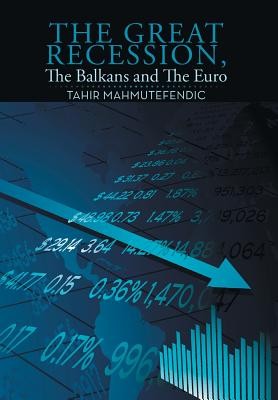
- We will send in 10–14 business days.
- Author: Tahir Mahmutefendic
- Publisher: Xlibris
- ISBN-10: 151446201X
- ISBN-13: 9781514462010
- Format: 15.2 x 22.9 x 1.6 cm, hardcover
- Language: English
- SAVE -10% with code: EXTRA
The Great Recession, The Balkans and The Euro (e-book) (used book) | bookbook.eu
Reviews
Description
The recession, which started in the USA in autumn 2007, spread to the rest of the world in 2008 and 2009. The Balkan countries were hit hard by the recession. Closely tied to the European Union, they felt the full blow of the crisis in the Eurozone. In a narrow sense, this crisis was caused by weaknesses, contradictions, and inconsistencies of the EMU. In a wider sense, the common denominator of the Great Recession and the crisis in the Eurozone could be found in huge imbalances generated by market fundamentalism and the inability of the neoliberal concept of capitalism to achieve major socioeconomic goals.
EXTRA 10 % discount with code: EXTRA
The promotion ends in 19d.15:11:58
The discount code is valid when purchasing from 10 €. Discounts do not stack.
- Author: Tahir Mahmutefendic
- Publisher: Xlibris
- ISBN-10: 151446201X
- ISBN-13: 9781514462010
- Format: 15.2 x 22.9 x 1.6 cm, hardcover
- Language: English English
The recession, which started in the USA in autumn 2007, spread to the rest of the world in 2008 and 2009. The Balkan countries were hit hard by the recession. Closely tied to the European Union, they felt the full blow of the crisis in the Eurozone. In a narrow sense, this crisis was caused by weaknesses, contradictions, and inconsistencies of the EMU. In a wider sense, the common denominator of the Great Recession and the crisis in the Eurozone could be found in huge imbalances generated by market fundamentalism and the inability of the neoliberal concept of capitalism to achieve major socioeconomic goals.


Reviews